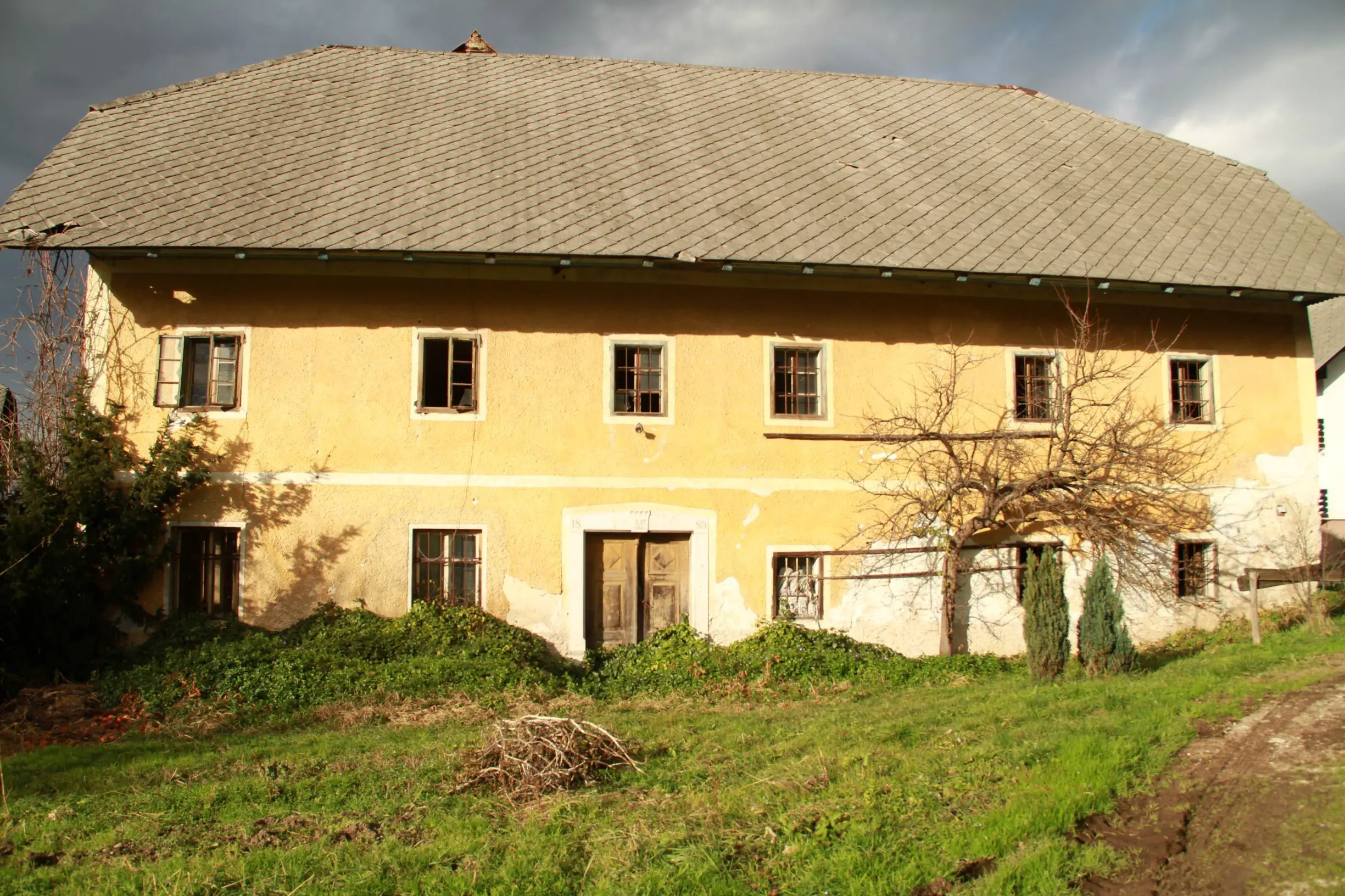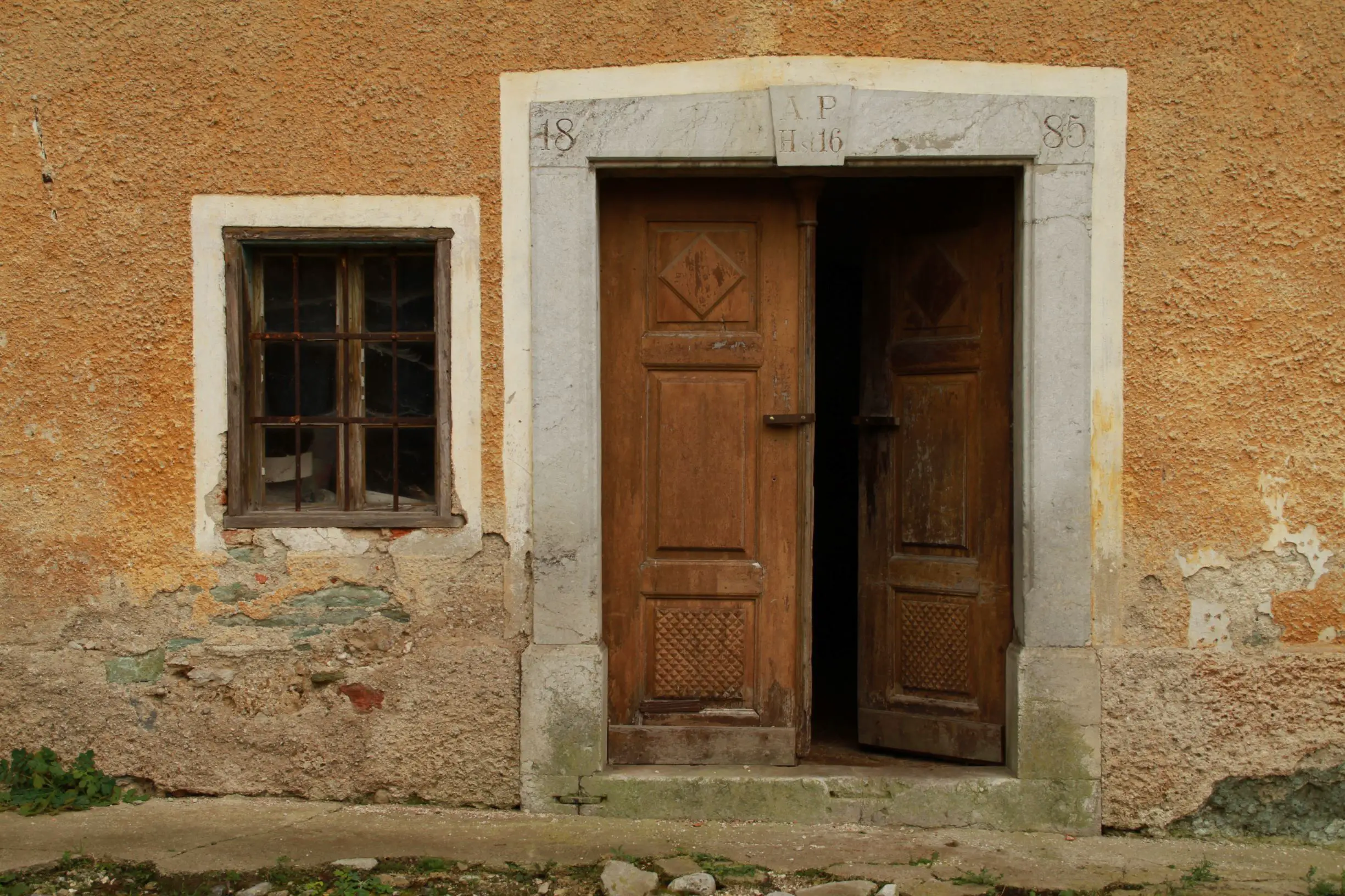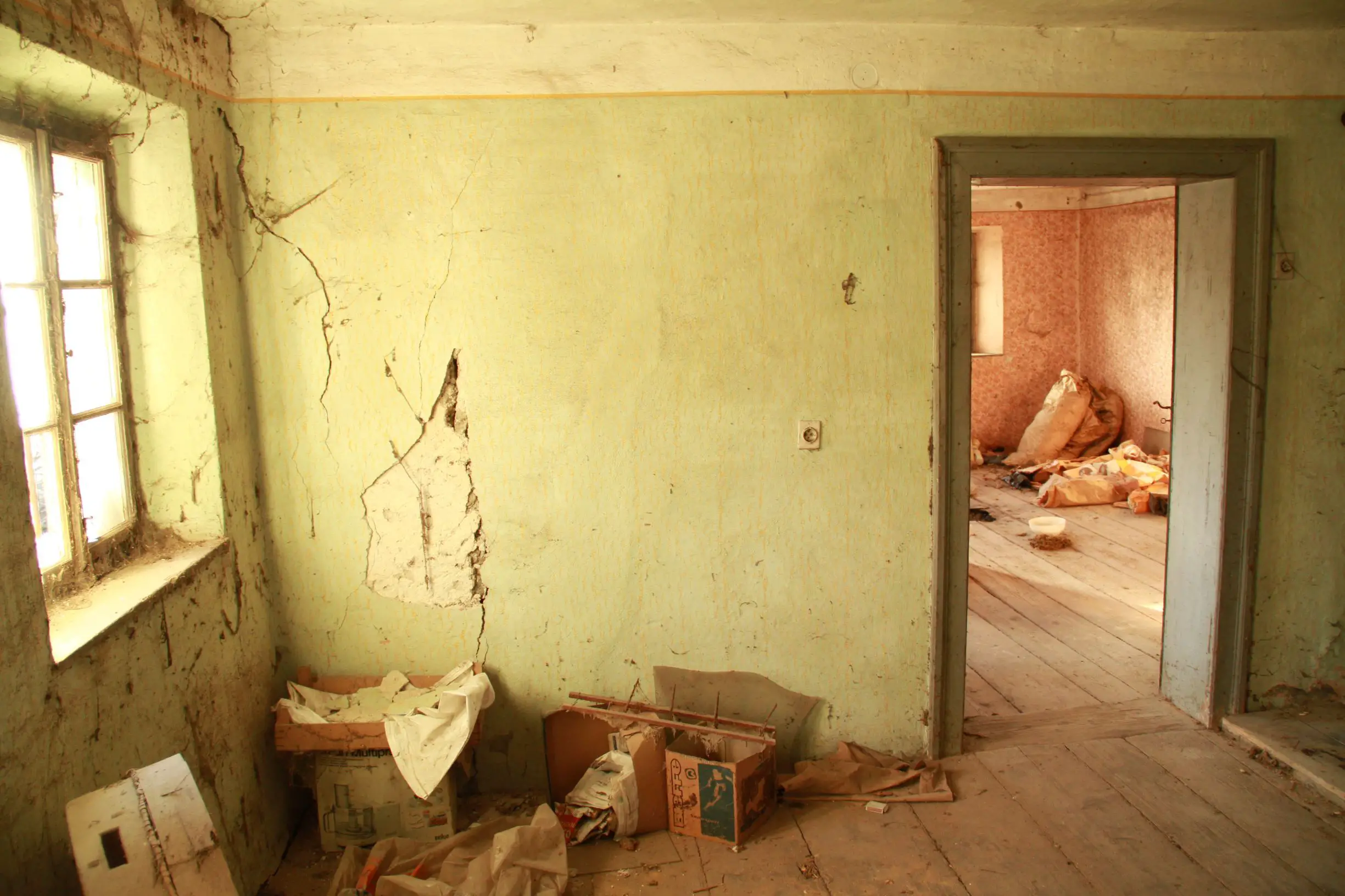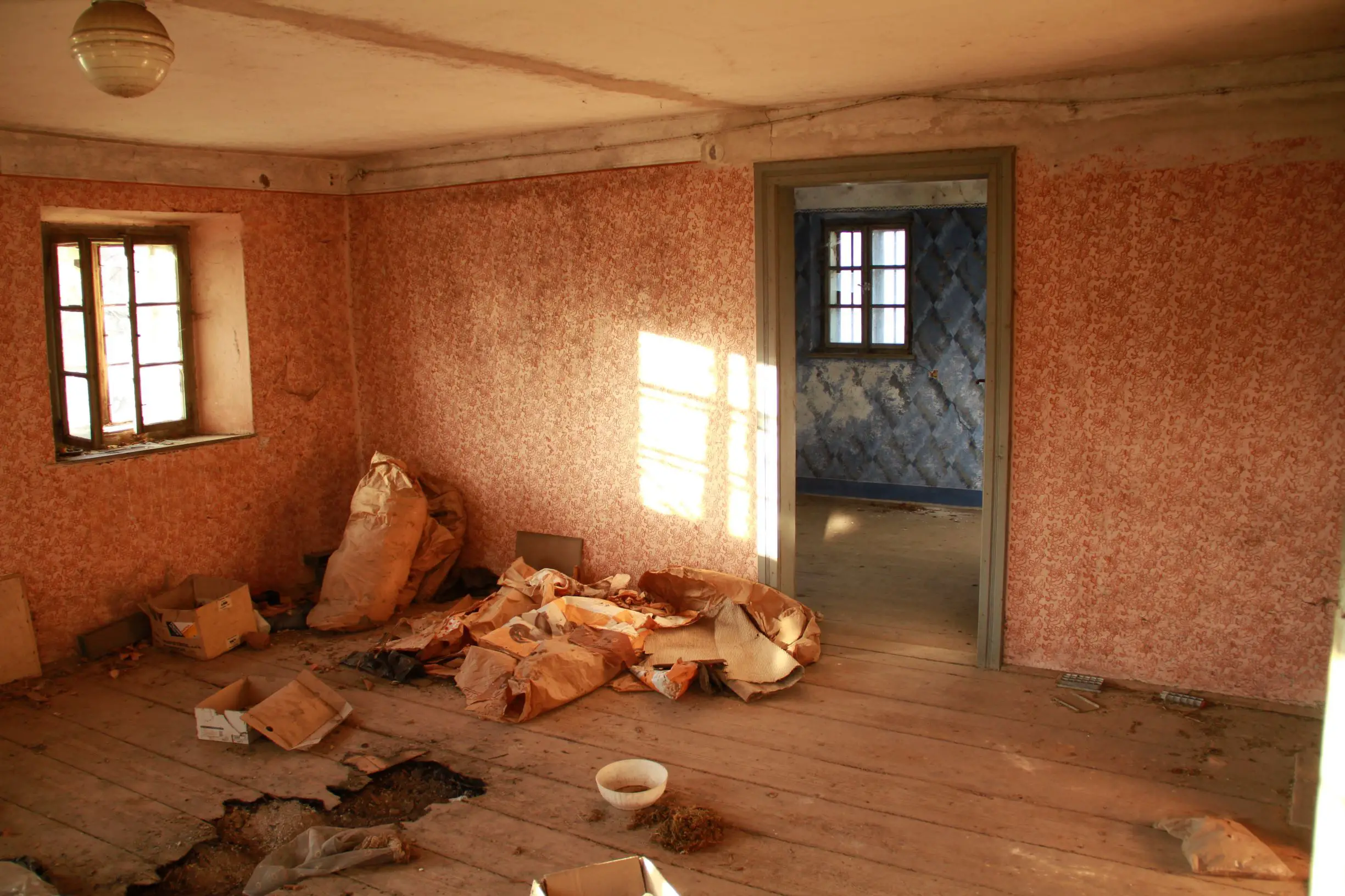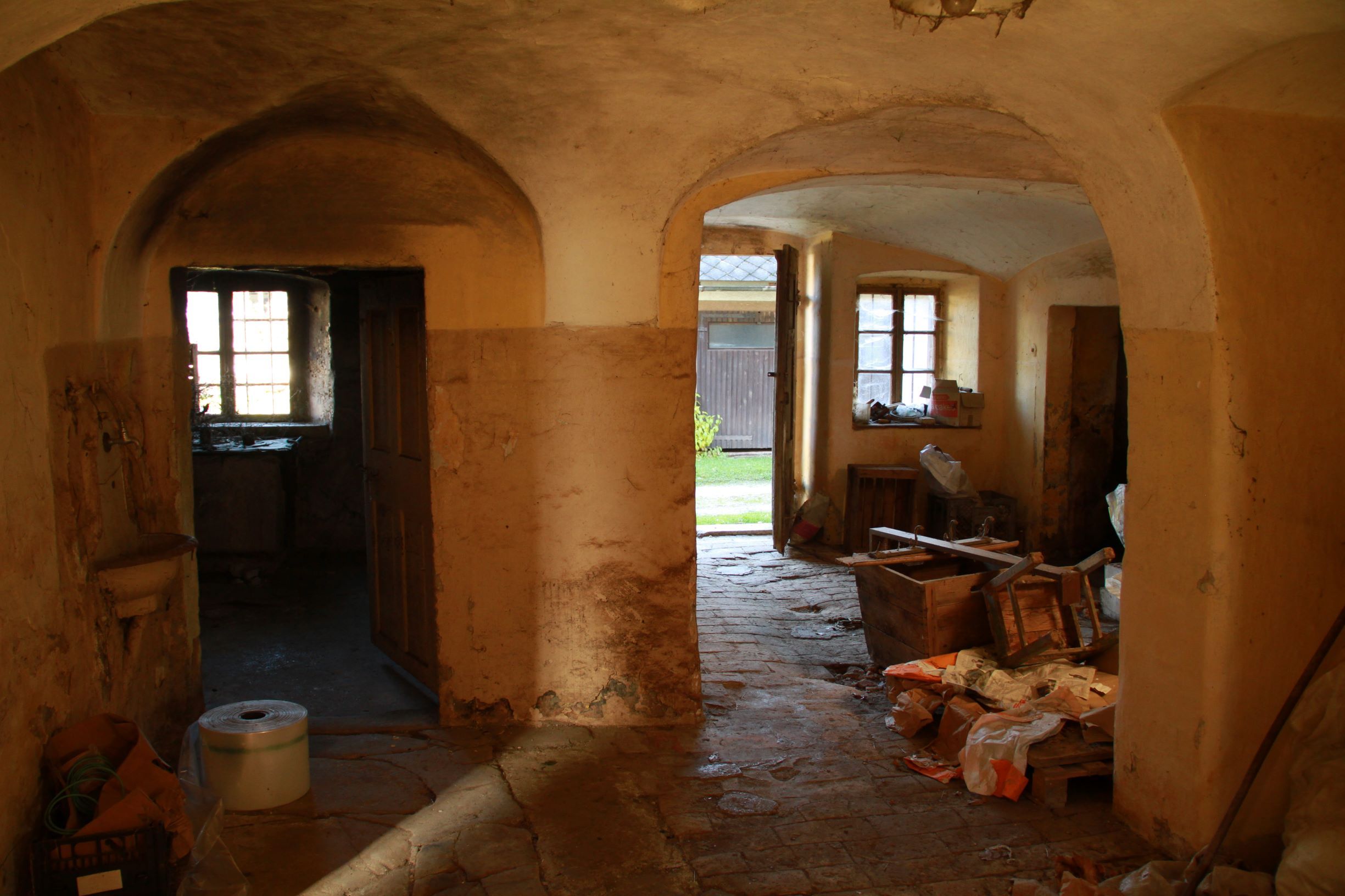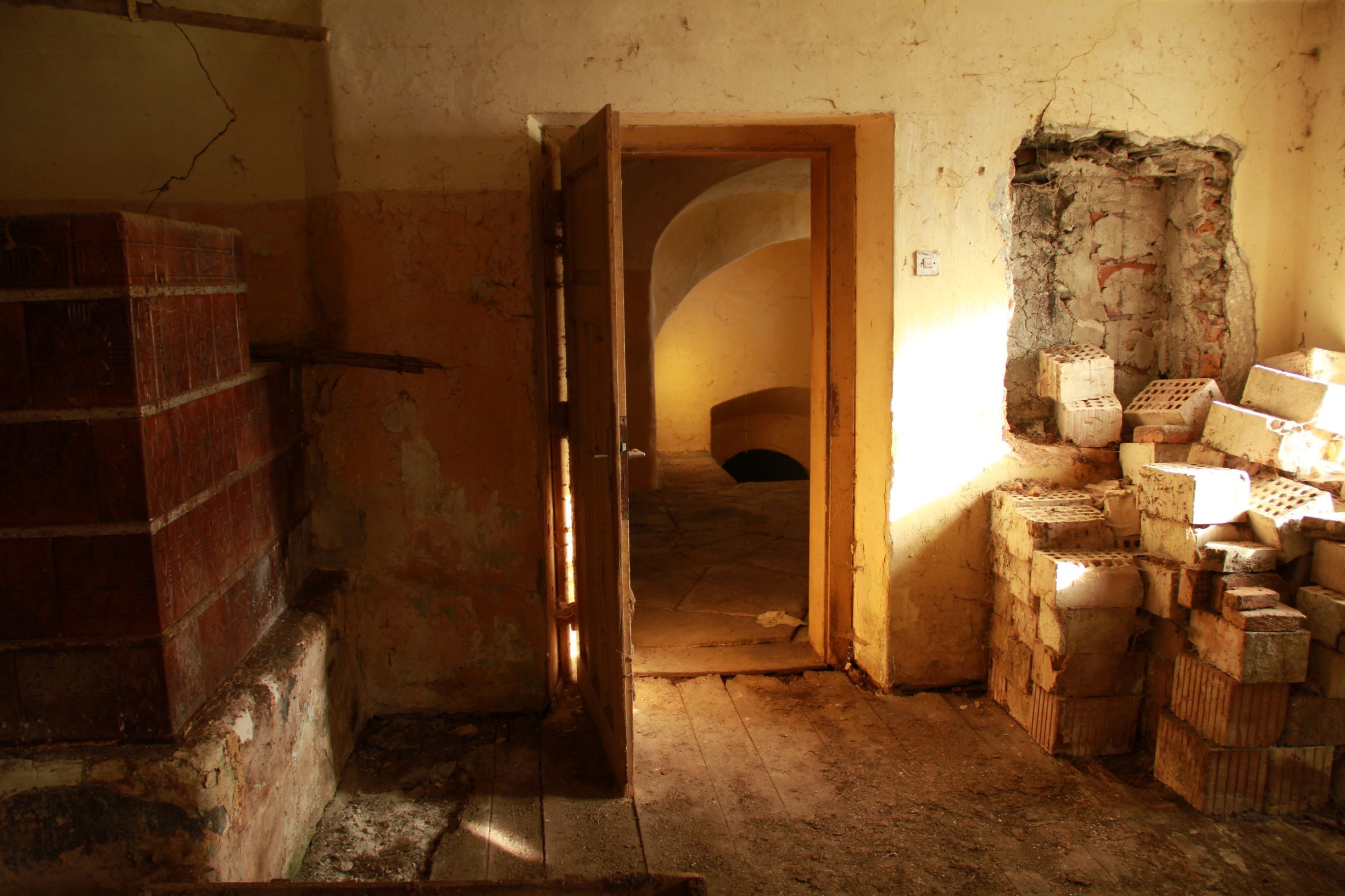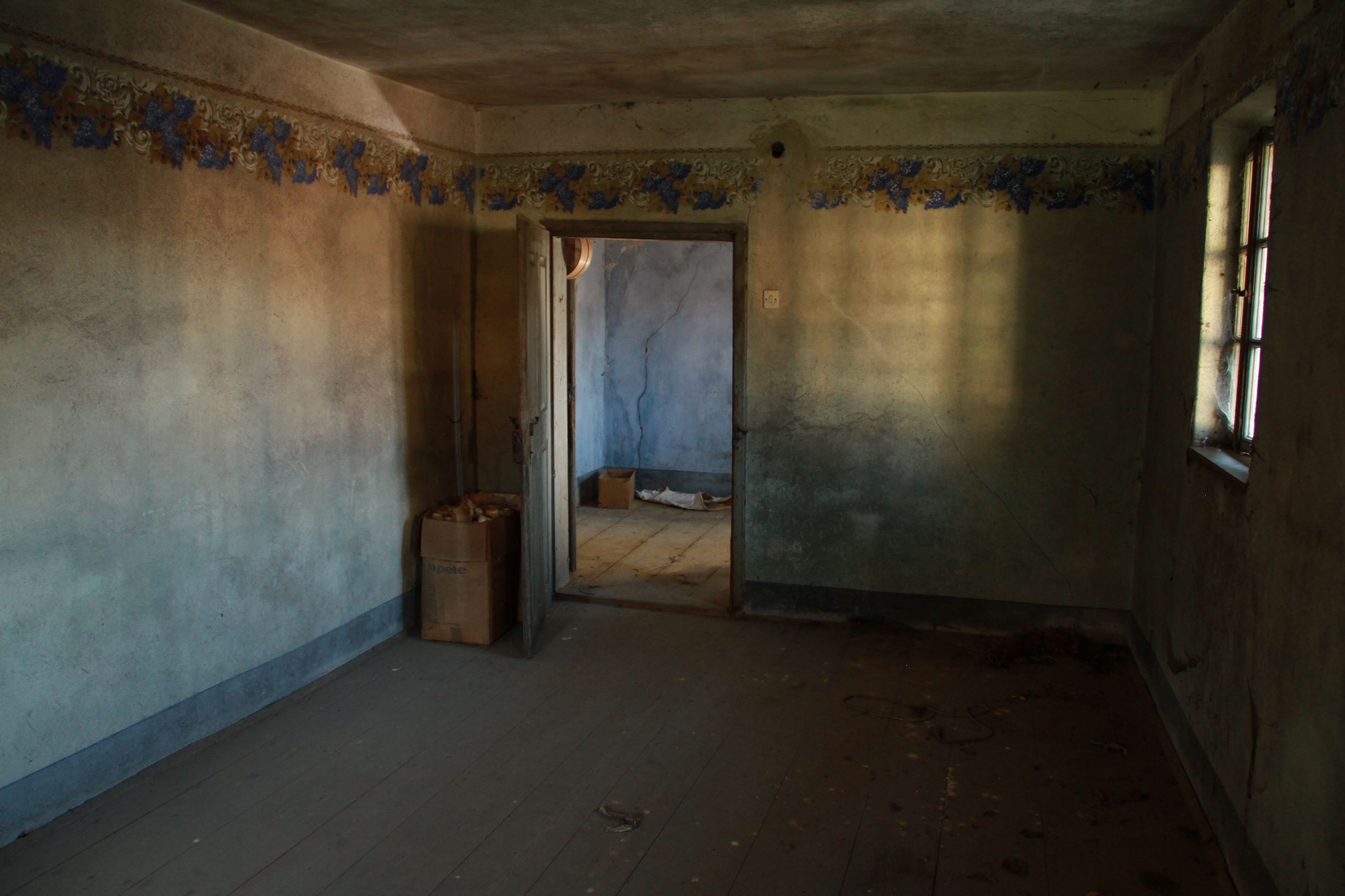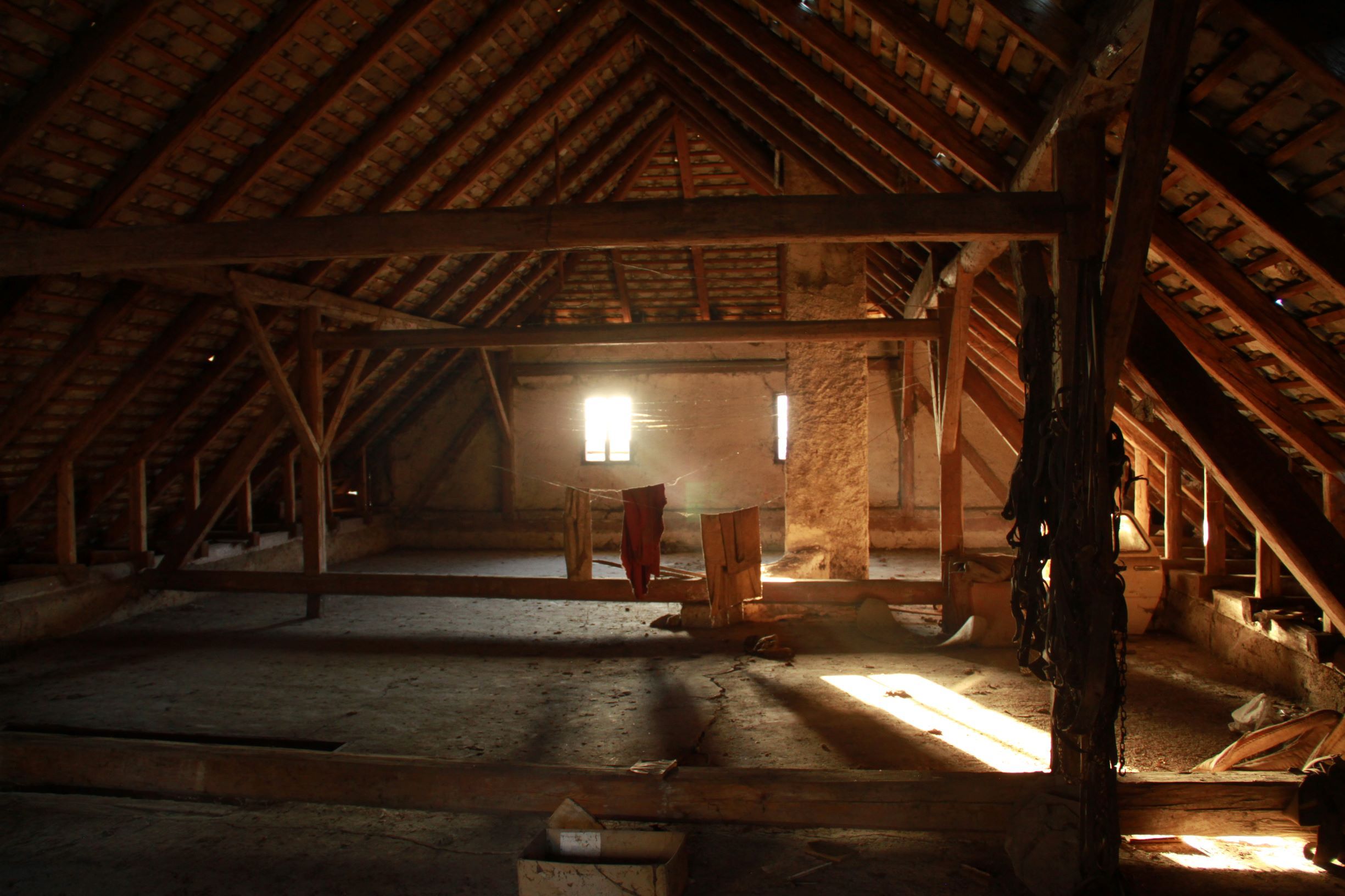News
STA, 17 April 2019 - A visiting exhibition on shamanism in Siberia, put on by the Russian Museum of Anthropology and Ethnography in Saint Petersburg, is opening at the Ethnographic Museum in Ljubljana on Wednesday. The exhibition presents the culture and shamanism of 18 indigenous peoples of Siberia and the Russian Far East.
The exhibition casts light on the basic element of shamanism, which is characterised by a special concept of the world whose structure is made up of three parts - the Upper World (the sky, where the gods live), the Middle World (Earth, where people live) and the Under World (the world of the dead).
The three worlds are interlinked by a central axis (axis mundi), whose symbol is the tree of the world, which shamans use to make their drums, the author of the exhibition Valentina V. Gorbacheva of the Russian museum said.
According to the director of the Slovenian Ethnographic Museum, Tanja Roženbergar, the exhibition presents "the extraordinary yet little known phenomenon of shamanism that speaks of unity between man and nature and the entire universe".
Gorbacheva said that 18 out of the 45 indigenous peoples living in Siberia and the Russian Far East were presented. They all share a very close connection with nature and respect for natural spirits.
The shaman is considered an intermediary between humans, nature and the spirit world. He or she was the guardian of rare knowledge and traditions, chosen by spirits. In a ritual known as kamlanie, the shamen achieved a state of ecstasy and connected with the world of the spirits.
The exhibition features 80 rare ethnographic objects such as a ritual cloak made out of fish skin, ritual masks and small sculptures, and 45 archive photographs from the Russian Ethnographic Museum, which portray the spiritual culture of the Siberian peoples from the late 19th and the first half of the 20th centuries.
The final part of the exhibition reveals the connections between shamanism and Christianity and Buddhism.
The exhibition, which will be open until 20 October, will be accompanied by various discussions, film screenings, musical events, workshops and a programme for children and families.
All our stories on the Ethnographic Museum are here, while our regular guides to What’s on in Ljubljana are here
STA, 17 April 2019- Slovenia still has a way to go before becoming truly attractive to best talent, a debate organised by AmCham heard on Wednesday. The speakers, among them Labour Minister Ksenija Klampfer, shared the view that capable workforce thrived on demanding and interesting challenges.
Nana Šumrada Slavnič, the head of legal services at Ekipa 2, a branch of Outfit 7 that created the Talking Tom game, believes Slovenia has a good education system but it fails to deliver variety to those who want more than what is offered as part of the curricula.
Moreover, companies should focus on public exposure of their best talent. "People are good at their jobs when they feel valued," Šumrada Slavnič told the event hosted by the Ljubljana Faculty of Economics.
The minister in charge of labour, family, social affairs and equal opportunities, Klampfer, believes that life-work balance remained a blind spot for many Slovenian employers.
Often, people leave their jobs because of poor relations at the company, she said, adding the only way to address this issue was to improve communication at the workplace.
Professor Robert Kaše of the Economics Faculty believes that talent need challenges. A study of the faculty showed that talents believed they were using only about 66% of their potential at work. He also stressed the importance of either formal or informal recognition of the talent's status within the company.
Ksenija Špiler of BB Consulting believes it is key for talents to find their own challenges and not for them to wait to be presented by challenges with the superiors.
Touching on brain drain, the minister said this was a normal phenomenon. It is good for people to go abroad, gain new experience and return back home. Slovenia can achieve that they will indeed return through effective housing policies and welfare system.
Matic Vošnjak of Competo, a human resources consultancy, said that 47% of people who venture abroad return back home. However, they often have problems with finding new opportunities for themselves once they return because companies frequently do not know how to use their potential.
All our stories about AmCham Slovenia are here
STA, 17 April 2019 - Slovenia's best goalkeeper and national team mainstay Jan Oblak has agreed on a contract extension with his Atletico Madrid until 2023, the Spanish powerhouse announced on Wednesday. The extension makes him one of the highest paid goalkeepers in the world.
The four-year extension puts an end to lengthy negotiations between the Slovenian and the club for which he has played since July 2014.
The 26-year-old from Škofja Loka is to receive around 10 million euro a year under the new contract, which makes him one of the highest paid goalkeepers in the world.
According to Transfermarkt, Oblak is the most valuable goalkeeper in the world, with an estimated market value of 80 million euro.
The new contract for Oblak, who has played 203 games for Atletico Madrid and managed to keep his net intact for a whopping 115 games, is expected to put his buyout value at 120 million euor.
His goalkeeping statistics brought him the latest three annual titles of the best goalkeeper in the Spanish premier division.
"I'm very happy to extend my cooperation with Atletico, that I'm here. I will continue to defend the club's colours as best as I can and I will continue to play hard," he told the club's website.
With the Madrid club, Oblak won the Spanish Super Cup (2014), the UEFA Europa League (2018) and the UEFA Super Cup (2018).
He also made it to the best team of the UEFA Champions League in the 2015/16 and 2016/17 seasons, and was also declared the Slovenian football player of the year in 2015, 2016, 2017 and 2018.
Oblak, who has 20 caps for the national team, has recently announced his return to the team after an absence of more than a year.
STA, 17 April 2019 - Allegations of pressure made by the judge presiding over the Chemistry Institute boss murder retrial has drawn a response from his superior, who asked the judge to provide explanations, while he denied being pressured himself as alleged by the judge. Other officials joined him in supporting judicial independence.
In announcing the acquittal of Milko Novič for the December 2014 murder of Chemistry Institute director Janko Jamnik, the presiding judge Zvjezdan Radonjić said that from the start of the retrial, the court's president, Marjan Pogačnik, had been pressured to discipline him so he would judge the way he should.
Pogačnik, who heads the Ljubljana District Court, told reporters on Wednesday that no one in the country had exerted any pressure on him personally. He did ask Radonjić to provide explanations for his comments by the end of work day on Thursday.
Only then would he be able to assess whether the judge had been subject to unlawful interference in his independence, Pogačnik said, adding that he had been asked by Supreme Court President Damijan Florjančič to look into the judge's allegations and report back to him.
All our stories on the Institute of Chemistry can be found here
This was confirmed by the Supreme Court, which said that if the judge's allegations turned out to be accurate, this would require an appropriate reaction because pressure on judges was unacceptable.
Radonjić alleged as he delivered the verdict on Tuesday that one of those who suggested his disciplining was Harij Furlan, the head of the Specialised Prosecution Service. He also said that he was subject to a smear campaign in the media.
The judge said that, because he wanted to grant a fair trial to Novič, he would never get promoted and would likely face suspension: "Novič having a fair trial hinges on my decision to ruin my career," he said.
Commenting on that, Pogačnik underscored that providing a fair trial was a major postulate for any judge and acting in this way could not result in any measures. "The fear that any judge could be subject to any sanction whatsoever because of his decision in a concrete case is completely unnecessary."
Pogačnik said that to his knowledge, Radonjić was not subject to any disciplinary or criminal procedure in connection to the Novič case. As far as he knew, Radonjić had not yet turned to the Judicial Council over the alleged pressure.
He did not know whether a criminal complaint had been filed against the judge by Miha Kunič, the lawyer of Janko Jamnik's widow. "If the information is accurate, this circumstance, even if the complaint had been filed before the judgement's announcement doesn't affect the course of the procedure in any way."
Pogačnik did say that the prosecutor in charge of the case asked for Radonjić's exclusion, which he turned down because he did not think the judge's impartiality had been compromised.
He also admitted that Furlan as the head of the Specialised Prosecution Service did write to him about "certain inappropriate actions on the part of the judge" in which he detected disciplinary violations and elements of breach of judge's ethics code.
He will decide about what to do with Furlan's letter once the Novič case is concluded, as he will about Radonjić's proposal to complain against lawyer Kunič with the Bar Association. However, Pogačnik has asked the Judicial Council's ethics commission to take a position on Furlan's allegations against the judge.
The Specialised Prosecution denied Radonjić's allegations in the strongest terms, while stating that Furlan proposed Pogačnik take action against Radonjić over his inappropriate and untruthful comments about the prosecutor in the case, Blanka Žgajnar, and Furlan.
Justice Minister Andreja Katič would not comment on the concrete case, but she said that the judiciary's impartiality and independence were essential for the rule of law, so she condemned in the strongest terms any pressure on the judges' work and decisions.
"Minister Katič is of the opinion that [commenting on the judge's statement] could lead to a risky practice - political influence on concrete decisions of independent bodies, so she will, despite requests and expectations from the public, refrain from commenting on concrete cases," the ministry said.
The ministry added in a press release that it had not been acquainted with concrete circumstances of the alleged pressure, so it could only provide a general view. It pointed to options available to a judge when his or her independence may be threatened, including appealing to the Judicial Council.
"All stakeholders in court procedures need to be aware that they may be exposed to critical opinion from the public and the judge must always act in such a away as to protect impartiality and independence of judging, and apply appropriate mechanisms in defence of these values and principles," said the ministry.
The Judges' Association has not been acquainted with the pressure alleged by Radonjić, but it did term any pressure on judges unacceptable as a matter of principle, emphasizing that judges had a commitment to act by the constitution and laws alone, and never based on expectations from the public, politicians or business.
The allegations of pressure also triggered a political response, with Janez Janša, the leader of the opposition Democrats (SDS), urging the police to look into the matter, suggesting President Borut Pahor should take a stance as well. He indicated the SDS would seek an emergency parliamentary session.
While Janša responded via his Twitter account, his party's MEP Milan Zver spoke about the Novič case in the European Parliament in Strasbourg today, calling the trial yet another judicial farce after the Patria defence corruption case.
Bookmark this link and find the headlines faster each morning, or follow us on Facebook
A schedule of all the main events involving Slovenia this week can be found here
Visiting Ljubljana? Check out what's on this week, while all our stories on Slovenia, from newest to oldest, are here
This summary is provided by the STA
EU Commission files suit against Slovenia over seized ECB files
BRUSSELS, Belgium - The European Commission lodged a complaint against Slovenia at the European Court of Justice for its failure to respect the protected status of ECB documents (principle of inviolability of EU archives) and for failure to cooperate sincerely in the context of the seizure of ECB documents as part of a criminal investigation at central bank Banka Slovenije. The case refers to a July 2016 police raid of the offices of Slovenia's central bank, a part of an investigation into the causes of the late-2013 bailout of the Slovenian banking system.
Pahor: Bosnia genuinely wants to be prosperous
SARAJEVO, Bosnia-Herzegovina - Bosnia-Herzegovina genuinely wants its future to be safe and prosperous, and this is closely linked with its EU accession, President Borut Pahor stressed as he addressed the Sarajevo Business Forum on the second day of his visit to the country. The EU should thus take action based on this, because it too would benefit from a more flexible enlargement policy to the Western Balkans. Pahor reiterated the EU enlargement to the Western Balkans was an increasingly geopolitical issue.
Explanations sought after Novič case judge alleges pressure
LJUBLJANA - Marjan Pogačnik, the head of the Ljubljana District Court, urged judge Zvjezdan Radonjić to provide explanations for his allegations yesterday that he faced pressure over the retrial of Milko Novič for the 2014 murder of the Chemistry Institute boss, which ended in acquittal. Pogačnik denied being pressured to discipline the judge, but he confirmed that the head of the Special Prosecution Service complained against Radonjić's conduct. The prosecution also denied the allegations of pressure, while Justice Minister Andreja Katič said she condemned any pressure on judges. The opposition Democratic Party (SDS) indicated it would seek an emergency parliamentary session on the matter.
Ministry proposes changes to financing of private primaries
LJUBLJANA - The Education Ministry put forward draft amendments to the education financing act, proposing that private primary schools get full state funding to teach publicly approved curricula, however, the conditions under which they will get the concession are to be stiffened. The proposal, submitted for a three-week consultation period, is set to implement the 2014 Constitutional Court ruling mandating full rather than 85% state financing of publicly approved curricula at private primaries.
SNS first to submit EU election list
LJUBLJANA - The opposition National Party (SNS) filed its list of candidates for May's EU election to the National Electoral Commission as the first party to do so. "We filed it first and we expect the same result in the elections," party leader and MP Zmago Jelinčič, who tops the list, told the press on the occasion. One of the latest opinion polls projected the SNS winning one of the eight Slovenian MEP seats, but Jelinčič said the SNS, which has never had a MEP, did not rely on polls. Parties have until 26 April to submit their lists of candidates.
Croatian courts hand down first rulings on Slovenian fishermen
PIRAN - Croatian courts have delivered the first rulings on Slovenian fishermen fishing in the Bay of Piran along the border as set by the border arbitration tribunal in 2017, which Croatia rejects. In case of fisherman Silvan Radin, the court dropped the charges, but his family company was fined almost EUR 14,800 for a total of eleven cases, lawyer Ivica Senjak, who represents Slovenian fishermen in Croatian proceedings, told the STA. The second fisherman, Elvin Sabadin, was slapped with a fine of some EUR 2,150 in eight cases. Senjak said both decisions had already been challenged.
Lithuanian interior minister starts visit
LJUBLJANA - Border security and migration topped the agenda as Lithuanian Interior Minister Eimutis Misiunas was received by his Slovenian counterpart Boštjan Poklukar for an official three-day visit in Ljubljana. The pair found that their countries were aware of the responsibility to protect the external Schengen border, but established that Slovenia faced much bigger pressure of illegal migrations. Poklukar thanked Lithuania for deploying 50 police officers to Slovenia during the migration crisis in 2015 and 2016.
Erik Kerševan new Judicial Council president
LJUBLJANA - Erik Kerševan, a judge at the Supreme Court, was appointed on Tuesday to head the Judicial Council, replacing Barbara Narat, who resigned for personal reasons. The president is elected by council members in a secret ballot with a two-thirds majority for three years with no option of re-appointment. The eleven-strong Judicial Council is the key body for staffing in the judiciary, also deciding on promotions of judges or their incompatibility with other offices. It has full powers in picking candidates for judges, oversees their work and is fully responsibly for disciplinary proceedings.
Abanka's annual profit more than doubles
LJUBLJANA - Abanka, Slovenia's third largest bank, posted a EUR 66.7m net profit last year, up 56% over 2017, the audited annual report showed. Net interest revenue amounted to EUR 60.6m, down from EUR 71.9m in 2017, while net non-interest revenue was up to EUR 64.4m from EUR 46.8m. Its total assets amounted to EUR 3.73bn, up from EUR 3.66bn at the end of 2017. The bank, in 100% state ownership since it was bailed out with taxpayer money in 2013, is slated for privatisation. Unofficial reports suggest three binding bids were submitted last month.
Bad bank executive director Jaklin dismissed
LJUBLJANA - Jože Jaklin was dismissed as an executive director of the Bank Assets Management Company (BAMC) by BAMC non-executive directors on Tuesday, following two resignations of the bad bank's executive directors in the recent months. The only remaining executive director is now Matej Pirc, acting director general. Jaklin leaving the bad bank was an expected move and is considered just another step in the executive management replacement process. The BAMC selection procedure for the new executive management is in its final phase, with the bad bank having received 24 international applications.
Police, ministry at odds over strike agreement implementation
LJUBLJANA - One of Slovenia's two police trade unions appointed a strike committee on Tuesday in the wake of warnings the Interior Ministry was trying to find a way out of a strike agreement reached in December. The SPS, which noted social dialogue hit the lowest point, said on Wednesday a major issue was the payment of bonuses for police officers working on the Schengen border. The ministry claims the EUR 15m available for 2019 also involves the employer contributions, whereas the unions believe the funds should go exclusively for net bonus payments.
Investment in mutual funds increasing among Slovenians
LJUBLJANA - Slovenians prefer to save in bank deposits, however mutual funds have seen an increase in assets and savers. At the end of 2018 Slovenian households had EUR 1.7bn invested in mutual funds, said Karmen Rejc, director of the Slovenian Investment Fund Association. The average European invests 10% or EUR 5,800 of their assets in mutual funds, whereas in Slovenia the figure is lower, namely 6% or EUR 900, she said at a news conference before Friday's World Mutual Fund Day.
Police arrest two for euro counterfeiting
CELJE - Celje police arrested last week two individuals for counterfeiting 500-euro banknotes, which were being cashed in the wider Celje area, central Slovenia. The Celje Police Department said criminal charges will be filed against a 47-year-old woman and a 54-year-old man on suspicion of money counterfeiting. The police also said the counterfeited bills were of high quality, warning cash businesses to be careful when accepting 500-euro banknotes.
Slovenia's Oblak extended by Atletico Madrid until 2023
MADRID, Spain - Jan Oblak, Slovenia's best goalkeeper and national team mainstay, has agreed on a contract extension with his Atletico Madrid until 2023, the Spanish powerhouse announced. The four-year extension put an end to lengthy negotiations between Oblak and the club for which he has played since July 2014. The 26-year-old from Škofja Loka is to receive around EUR 10m a year under the new contract, which makes him one of the highest paid goalkeepers in the world.
We recently became aware of an interesting new project, Marnie’s House, being organised by Saira and Will Aspinall, who traded their lives in London for rural Slovenia. Curious to learn more about both the project and their reasons for pursuing it, we sent along some questions and Saira was kind enough to reply….
Where did you live before Slovenia, and what brought you here?
We lived in a small flat in Brixton, South London. We met in a rowdy reggae bar there, fell in love and had two beautiful children, but we wanted fresh adventures. A holiday by Lake Bled for Will’s 40th birthday in April 2018 presented the contrast and the opportunity we were after. Fresh air and mountains as opposed to crowds and the worst air pollution in Europe! We put our house on the market as soon as we got back from that holiday to Slovenia and looked back since.
What’s the idea behind Marnie’s House?
The idea is to create a luxury bed and breakfast especially for family travellers to Slovenia. As parents of two young children, we’ve had so many experiences of staying in hotels where it just didn’t feel like our children were catered for. Our aim is to offer families a chance to spend quality time together in beautiful surroundings, with a touch of English country house glamour and none of the stress sometimes caused by family travel. We’ll have a strong focus on sustainable tourism and green living, and will definitely be encouraging visitors to explore in nature as much as possible. A stay at Marnie’s House should feel like you’re staying with good friends who are just unusually good hosts.
How did you find the property?
We used Slovenian Property Development - a full-service estate agency, construction and development company based in Bohinj and Ljubljana. We saw the farmhouse for the first time in an online listing and instantly fell for it. The agency showed us several other houses, but secretly Will and I both knew we would end up buying this one.
How much renovation does it need, and what’s been your experience working with builders, and so on?
The original sales listing for the house said it hadn’t been renovated for “quite a long time.” In truth, some parts of the house date to 1500 and it hasn’t been inhabited for almost 40 years. So the renovation is daunting, as almost everything needs to be done, but so far our experience of working with architects and developers here has been very positive. We’re only just approaching the planning permission stage though, so have been warned there may be frustrations ahead!
What has been your experience of starting a business here?
So far, relatively painless. We were lucky as Slovenia Property Development helped us with registering the business and opening bank accounts etc when we were still based in London. There were a few humorous moments - signing a power of attorney which was entirely written in Slovene before we had any knowledge of the language was a little nerve-wracking. We’ve found that the banks and professional services here are a bit less flexible than in the UK, and perhaps not as used to the idea of small business entrepreneurs, but nothing is impossible.
When will the property be open for business?
We hope to be open for business sometime in 2020. As well as offering bed and breakfast, the house will be available for full-service private hire, parties and events. We have also just launched ‘Events at Marnie’s House’. Starting this summer, we will be running interactive workshops, guided walks, art classes and performances in our forest grounds. Our first events will be a series of foraging workshops, hosted by Katja Rebolj, a wonderful contact we have made here who is an expert in wild and edible flowers. Katja supplies foraged plants to lots of the top restaurants and bakeries in Ljubljana and she is going to share all her incredible knowledge during our workshop and foraging walk. All the events we host will be designed to inspire a greater connection with the natural world.
We are also renovating an awesome 1980s Adria caravan into a mobile bar (with Slovenian craft beer and Italian Prosecco on tap), which will soon be available for hire at weddings and parties, and will be adding some sparkle to a local campsite this summer.
What are some things from Slovenia that you think the UK could benefit from?
EU membership, to name one thing! We’re also very grateful for vrtec (kindergartens). In the UK the most basic pre-school care costs a fortune, often taking the entire income of one parent. That’s a bad start to life, and a huge stress on young British families.
The British countryside is beautiful but we’ve never seen so many wild flowers and butterflies as here in Slovenia. I’m not sure where they’ve gone in England but it would be nice to see them back again.
And what are some thing from your home country that you think Slovenia could benefit from?
Nothing beats a takeaway curry - poppadoms, onion bhajis, etc. We were very excited the first time we spotted mango chutney in Radovljica Spar.
Have you started to learn Slovene?
We knew that although many Slovenes are proficient English speakers we were never going to understand Slovenian culture or be fully accepted unless we tried to learn the language. We were recommended a teacher for private lessons and started as soon as we arrived. Kristina’s fantastic, conscientious, creative and very, very patient! A few months on and we’re still learning slowly but people are very forgiving and appreciate the effort. Počasi se daleč pride.
Will’s happy to throw himself into awkward situations, especially as we begin to meet business connections around the area. I’m much better at understanding what people are saying, but being a perfectionist I don’t like to be wrong and often let him make the mistakes.
Some of our neighbours don’t speak English at all and we are thankful that they persist in trying to hold conversations with us on a daily basis. Sometimes, we even understand them.
We are not very good at ‘studying’ and our grammar sheets often languish untouched, so immersion has been our most trusted technique for learning the language so far.
How do you feel about Slovenian food and drink?
We decided to become vegetarians for environmental reasons in early 2018. Despite the abundance of fresh vegetables and fruit the menus here are a bit of a challenge when you are looking for dishes ‘brez mesa’. But the food we have eaten has been of an exceptional standard - especially in some of the gostilna in Radovljica and at Vila Podvin. Will tried klobasa and nearly had to become a meat eater again!
We love the seasonality of food in Slovenia - mushrooms, pumpkin and chestnuts in autumn for instance. Seeing people with baskets foraging for food is a world away from shrink-wrapped ready meals in London.
It was a huge surprise that Slovenia has a thriving and ancient history of wine production, and we’ve become avid consumers of Refosk and Malvazija. Will comes from Somerset in England, a county famous for its ciders. Given the quality of the apples, he’s surprised that there’s no decent cider in Slovenia but plans to change that soon…
What things frustrate you about life in Slovenia?
Our main frustration is with ourselves and our slow progress with the Slovene language, but we know (hope) that will change in time. A few more bars showing rugby matches would be welcome too...
What things delight you?
Turning the tap and drinking the finest tasting water in the world; discovering močerad on rainy walks; how the ‘busiest’ spots in Slovenia will never match the queue for the 59 bus on Brixton Hill; the fact our children don’t want to leave vrtec to come home, the amount of carnivals, celebrations and national days we have enjoyed in just six short months living here, the talented craftspeople we have met whilst sourcing things for our caravan and house renovations.
Do you think you’ll stay in Slovenia for the rest of your life?
At the moment we plan to stay for 15 years or so, but I already feel like that isn’t long enough! Where we live now, we are surrounded by small farms and I love the idea of one day having one of our own. Perhaps when the children have left home... we can replace them with goats…
Where are some of your favourite places to visit here?
There are so many. We brought our dog with us when we moved, so we love a long walk in our area - along the white and blue waters of the Sava, or up in the forests above Radovljica. We are big fans of Pusti Grad (Lipnica Castle), and it makes us feel better about the relative disrepair of our house!
Our favourite family walk is the Grabnarca Waterside Nature Trail in the Lipnica Valley. It has everything: a babbling stream, a beautiful forest, a small lake and then an incredible reveal as you climb the valley and come out into rolling fields. I defy anyone not to break into ‘the hills are alive with the sound of music…’ at this point. One snowy day in December we followed deer tracks along the whole trail and drank hot chocolate on a small bridge above the frozen stream, which was about as magical as it gets.
We love Public Bar and Kitchen in Lake Bled - the menu is entirely vegan and the burgers and service are exceptional. Great for supper after a brisk walk or swim around the lake!
For a fun place to stay in the summer, you can’t beat the Eco River Camp right on the River Sava.
Finally, where can people follow the Marnie’s House Project?
Take a look at our website www.marnieshouse.si and sign up for our newsletter or keep up to date on our events, follow us on instagram @slovenianfamilyaspinall, or check out Will’s films about our life in Slovenia on YouTube.
If you'd like to share your Slovenian story with our readers, please get in touch with me at This email address is being protected from spambots. You need JavaScript enabled to view it.
April 17, 2019
In 1937 the Slovenian Communist Party was established in Čebine above Trbovlje as a formal implementation of a decision adopted at the fourth meeting of the Communist Party of Yugoslavia in 1934.
Revolutionary fever, which gained momentum during WWI, continued among demobilised farmers and workers with several rebellions and even attempts at establishing Soviet Republics in the Kingdom of Yugoslavia between the years 2018-19.
The Slovenian Communist Party was first established in 1920, but lost independence a month later after merging with the Yugoslav Communist Party. It adopted a thesis of one Yugoslav nation composed of three tribes, the revolution and the dictatorship of the proletariat as its goal.
In 1920 communist activity was banned by a decree, and a year later completely pushed into the underground following a few notable assassinations that were ascribed to communists.
In early 1930 young Russian educated communists such as Boris Kidrič and Edvard Kardelj begun a communist revival in Slovenia. In December 1934 the Communist Party of Yugoslavia held a congress in Ljubljana where a conclusion was adopted to establish Communist Parties of Slovenia and Croatia, but also Macedonia in the future – under the clear condition that the Communist Party of Yugoslavia would remain unified and centralised. This was finally implemented in 1937, mostly due to low numbers of communists in the country in 1934.
The ideological background of the Party in early the 30s was vague and addressed little to none of the pressing questions of the day. Clearer goals were then recognised on the Communist International in Moscow in the summer of 1935, which established fascism as the main enemy of communism, the people and nations as such, and which also allowed petit bourgeoisie to join the revolutionary struggle.
In this context of a polity of a People's Front against all forms of fascism, the Slovenian Communist Party was secretly established on April 17, 1937, with Edvard Kardelj as its leader. When in the same year Josip Broz Tito took the leadership of the Yugoslavian Communist Party, three of the Slovenian communist leaders were included into its leadership: Edvard Kardelj, Franc Leskošek and Miha Marinko.
The People's Front policy concluded two years later with the Ribbentropp-Molotov pact, between Stalin and Hitler, which prompted several early Slovenian communists such as Angela Vode, to leave the Party, while the remainder of the leadership decided to bow to Moscow. In the next two years the Slovenian Communist Party softened its anti-fascist propaganda and replaced it with a struggle against “Western imperialists” instead.
STA, 16 April 2019 - The National Assembly voted down the Democratic Party (SDS)-sponsored amendment designed to cut the personal income tax on Tuesday, thus paving the way for the adoption of the government proposal to abolish tax on the annual holiday allowance up to average monthly pay.
In its third such proposal since 2017, the opposition party sought to reduce tax rates for all income brackets by two percentage points, raise brackets by EUR 2,000 upwards, and increase the general tax credit from EUR to 3,300 to EUR 4,000, as well see to its adjustment with inflation.
The party argued that labour taxation in Slovenia was among the EU's highest, which made Slovenian businesses less competitive and less productive because they could not spend enough money on research and development. The high taxation was also blamed for the brain drain.
The party calculated that the amendment would result in a loss of revenue from income tax of EUR 387m, which would be offset through higher receipts from VAT as a result of an increase in consumption.
The Finance Ministry estimated the loss of revenue at EUR 383m and the increase in VAT revenue at EUR 19m. The government and coalition MPs argued that the loss of revenue would thus be excessive.
The only other parties to back the SDS proposal were the fellow opposition New Slovenia (NSi) and National Party (SNS).
Now that the SDS amendment is off the table, the National Assembly will be able to move on to the government-sponsored amendment which increase the threshold at which the holiday allowance is exempt from taxes and contribution from 70% to 100% of average pay.
The parliament is expected to pass this proposal at a session due on 25 April.
The current session wrapped up today after only two days of proceedings, including Monday's questions time.
All our stories on tax in Slovenia are here
STA, 17 April 2019 - Abanka, the country's third largest bank, posted EUR 66.7m in net profit last year, up 56.6% over 2017, according to the audited annual report released on Wednesday.
The report says that the optimisation of operations of Abanka continued in 2018, reflecting in a reduction of operating costs, which were down by 2.4% or EUR 1.8m compared to the year before.
Net interest revenue amounted to EUR 60.6m, down from EUR 71.9m in 2017, while net non-interest revenue was up to EUR 64.4m from EUR 46.8m. Impairments and provisions amounted to EUR 22m, up from EUR 8.2m in 2017.
Abanka's total assets amounted to EUR 3.73bn at the end of last year, up from EUR 3.66bn at the end of 2017.
The Abanka group's net profit was up by 57% to EUR 65.6m, while net interest revenue was down by almost 17% to EUR 61.1m.
The bank continued to lower the share of non-performing loans, which dropped by 5.6 percentage points at the group level to 4.6% through the sale of non-performing claims.
Abanka noted that the operating results, the sound capital position, a high level of liquidity and a significant reduction in non-performing loans also resulted in an improved credit rating by Moody's to investment grade in 2018.
The bank has been in 100% state ownership since it was bailed out with taxpayer money in 2013. The government must privatise Abanka to meet the commitments it made in exchange for the EU clearance of the state aid.
According to unofficial reports, three binding bids for the bank were submitted in the second half of March.
The media have mentioned the US private equity fund Apollo, Hungarian bank OTP, Serbia's AIK Banka, Austrian Erste Group, as well as US private equity funds Blackstone and Advent International as potential buyers.
While the pricing of the offers remains a secret, analysts estimated late last year the bank was worth EUR 340-460m based on the book value.
STA, 16 April 2019 - Slovenia is one of the most environmentally friendly countries in the world, according to the Good Country Index, compiled by analyst and professor Simon Anholt from the University of East Anglia. It ranks fourth among 153 countries in terms of its positive contribution to the planet and climate, preceded only by Norway, Switzerland and Portugal.
Slovenia did particularly well in the implementation of environmental agreements and reducing the use of substances that cause ozone depletion.
It also got good scores for ecological footprint and exports of dangerous pesticides, and it was close to average in terms of the share of renewable energy sources.
The photo at the top of the page shows the River Soča, a great destination for outdoor sports - read more about it here
The Good Country Index measures how much a country contributes to the planet and the human race, through their policies and behaviours.
Slovenia ranked 16th in terms of its contribution to culture and 21st for its contribution to the global science and technology. It is 45th in terms of its global contribution to the world order and the 47th most important advocate of prosperity and equality.
Slovenia is also 65th in efforts towards health and well-being, and 128th when it comes to promotion of international peace and security.
You can see Slovenia’s results, in more detail, here
April 17, 2019
Monday’s edition of Tednik, a news show from the national broadcaster, reported that Croatian women have been facing increasing difficulties in finding clinics that perform abortions at home, which brings them in growing numbers across the border to Slovenia.
According to Tednik, Brežice hospital, (the first Slovenian hospital on the way from Zagreb) has seen a 25% increase in Croatians seeking abortions in the last three months.
Although the procedure is legal in Croatia, almost 60% of Croatian gynaecologists, or 186 out of 322 ,refuse to perform abortions, according to Tednik. The problem is further acerbated by the fact that nurses and anaesthesiologists are also allowed to invoke the right to object on moral grounds, which, among other things, also leads to the painful procedure often being carried out without anaesthesia.
Another reason why Croatian women prefer to travel to Slovenia is the availability of an easier method of chemically induced abortion, which is only performed at two Croatian clinics, in Rijeka and Pulj. Furthermore, the general attitude towards women who chose an abortion is helpful and supportive in Slovenia, compared to the increasingly hostile environment in Croatia with regard to women and their reproductive rights. A recent case Tednik reported on involves a Croatian woman who had been molested by a close relative and got pregnant in the process. Croatian doctors refused to perform an abortion as it would mean “destruction of evidence”. With some help of the NGOs, the woman eventually managed to get the procedure done in Slovenia.
Abortion is part of the Slovenia’s health insurance plan, but not for Croatian citizens, who also have to pay for it in Croatia, if they’re lucky enough to find someone who is willing to perform it at all. Travelling to Slovenia is also not an option for everyone, as some people cannot afford to, while others do not want others to perhaps learn of the true purpose of their cross-border journey.
While Slovenia also allows gynaecologists to refuse to perform an abortion on moral grounds, only 10 out of 296 have invoked this right.
The legislation Slovenia and Croatia inherited from Yugoslavia was liberal with regard to family planning. However, following the independence of both, Slovenia was mostly led by liberal governments, while Croatia turned right, which pushed for a Catholic re-sacralisation of society.
A work group of the Croatian Parliament is currently drafting a new abortion legislation. The draft was supposed to be finished this March, but it wasn’t. The position of the current Health Minister Milan Kujundžić, who is supervising the drafting of the new law, suggests that we might see even more Croatian women coming to Slovenia for abortions in the future. Mr. Kujundžić believes that life begins with conception, that abortion is an act of evil, and that Church should be included in the debate over women’s reproductive rights.


